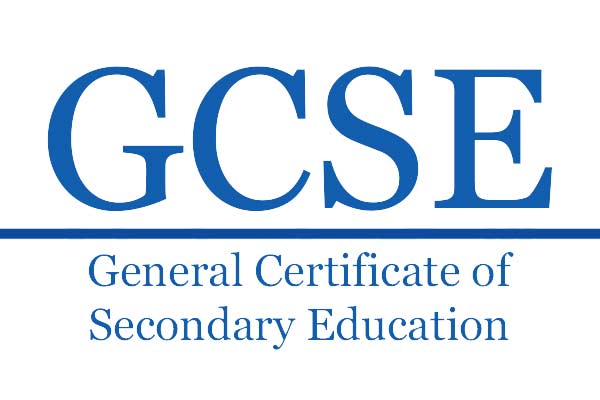Is Accounting GCSE Hard? An Expert’s Take
Accounting GCSE is a subject that many students find challenging. The question of whether or not accounting GCSE is hard is a common one among students who are considering taking the subject.
While some students may find accounting GCSE difficult, others may find it relatively easy.
The extensive amount of material to be covered is a factor that can make accounting GCSE challenging.
Accounting GCSE covers various topics, including financial statements, cash flow, and budgeting.
Students who struggle with math or have difficulty memorization may find it particularly challenging. However, students who enjoy working with numbers and have strong analytical skills may find accounting GCSE easier.
The teaching approach of the instructor is another aspect that can impact the level of challenge in studying GCSE accounting.
Some teachers may present the material in a way that is easy to understand, while others may need to.
Additionally, the teaching methods used in the classroom can also impact a student’s ability to learn and retain information.
Determining the difficulty of an accounting GCSE course hinges on several factors, such as a student’s strengths and weaknesses, the level of dedication they invest in their studies, and the quality of teaching they receive.
Understanding GCSE Accounting
GCSE Accounting is a qualification offered to students in the United Kingdom who are interested in pursuing a career in accounting or finance.
It is a GCSE subject that provides students with an introduction to the principles and practices of accounting.
🌟 Hey Students! 🚀 Ready for the ultimate experience? Join us on Studentsinside.com's Facebook, YouTube, WhatsApp, and LinkedIn. Click now for tips, fun, and success vibes! 🌈✨ #StudentLife #JoinUs
The GCSE Accounting course covers various topics, including financial statements, bookkeeping, budgeting, and taxation.
Students will learn to create financial statements, including balance sheets and income statements.
They will also develop skills in recording transactions and ensuring the accuracy of financial records.
To obtain a GCSE qualification in Accounting, students must take an exam at the end of the course. The test comprises two sections, with each one lasting for an hour and a half.
The first paper covers financial accounting, while the second covers management accounting.
While GCSE Accounting is a challenging subject, it is not necessarily hard. Students who have an interest in accounting and finance and who are willing to put in the effort to learn the material can do well in the course. It is crucial to keep up with the coursework and to seek help if needed.
Comparing GCSE Accounting with Other Subjects
When choosing GCSE subjects, students often ask whether Accounting is a difficult subject.
While it’s hard to say how hard a subject is, it’s possible to compare Accounting with other GCSE subjects to get an idea of its difficulty level.
GCSE Accounting vs Maths
Maths is one of the most popular GCSE subjects, and it’s also considered one of the most difficult ones. However, in Accounting, the difficulty level is lower than in Maths.
While both subjects require a good understanding of numbers, Accounting focuses more on financial concepts and calculations.
GCSE Accounting vs Business
Business is another popular GCSE subject that is often compared to Accounting. Both subjects are related to finance, but Accounting focuses more on recording and analyzing financial transactions.
At the same time, Business covers a broader range of topics, such as marketing, management, and entrepreneurship.
Accounting requires a good understanding of financial concepts and principles, while Business requires a good understanding of the business environment and the factors that affect it.
GCSE Accounting vs Physics
Physics is often considered one of the most difficult GCSE subjects due to its complex concepts and equations. When compared to Accounting, Physics is more challenging.
Accounting relies on a strong grasp of financial concepts and calculations. At the same time, Physics hinges on a solid understanding of mathematical principles and the skill to apply them in real-life scenarios.
Difficulty Level of GCSE Accounting
GCSE Accounting is considered to be one of the most challenging GCSE subjects. It requires a solid understanding of maths, Business, and finance, and students need to apply this knowledge to real-world scenarios.
The subject covers various topics, including bookkeeping, financial statements, and budgeting, and requires students to have excellent analytical skills.
The difficulty level of GCSE Accounting can be attributed to several factors. Firstly, the subject requires a lot of memorization of complex accounting concepts and principles.
Students need to understand and apply these concepts to different scenarios, which can be challenging.
Secondly, the subject requires a lot of calculations and problem-solving skills. Students need to be able to calculate financial ratios, interpret financial statements, and analyze financial data. This requires a strong foundation in maths and analytical skills.
Finally, the subject is constantly evolving, and students need to keep up with the latest trends and developments in the accounting industry. This requires a lot of research and reading, which can be time-consuming and challenging.
Study Techniques for GCSE Accounting
Preparing for the GCSE Accounting exam might seem tough, yet students can enhance their grasp of the topic and secure higher grades by employing effective study methods.
Here are some effective study techniques for GCSE Accounting:
Practice, Practice, Practice
One of the best ways to master Accounting is through practice. Students should practice solving Accounting problems regularly to improve their understanding of the subject.
They can find practice questions and exercises in textbooks, online resources, and past papers. By practicing regularly, students can identify their weaknesses and work on them.
Use Visual Aids
Accounting can be a complex subject, and students may need help understanding some concepts.
Visual aids like diagrams, charts, and graphs can swiftly enhance students’ grasp of complex ideas. They can also use flashcards to memorize Accounting formulas and definitions.
Learn from Mistakes
Mistakes come with learning, and students shouldn’t let them bring them down. Instead, they should learn from their mistakes and improve their understanding of the subject. Students can analyze their mistakes, identify the root cause, and work on correcting them.
Develop Good Study Habits
Achieving success in GCSE Accounting hinges on developing strong study habits. This involves creating a study timetable and faithfully following it.
Additionally, adopting time management strategies like the Pomodoro technique can be helpful. Lastly, ensure you have a peaceful place to study, free from interruptions.
Seek Help When Needed
If students face difficulties in Accounting, they should feel comfortable reaching out for assistance.
They have various options, such as approaching their teachers to get a better grasp of concepts, participating in study groups, or enlisting the help of a tutor to improve their understanding of the subject.
Exam Structure and Content
The Accounting GCSE exam is divided into two papers, both lasting 1 hour and 30 minutes. Paper one focuses on the accounting theory and consists of multiple-choice questions, short answer questions, and a case study.
Paper two centers on the real-world use of accounting, featuring a case study combining concise and in-depth response inquiries.
The content covered in the Accounting GCSE exam includes the following topics:
- The purpose of accounting
- The accounting equation
- Recording financial transactions
- Adjustments to financial statements
- Preparing financial statements
- Analysing financial statements
- Budgeting
- Costing
- Ratio analysis
- Internal controls
- Ethics
To get ready for the Accounting GCSE exam, students should make sure they have a strong grasp of these subjects and can use them in practical situations.
One effective way to prepare is by working through past exam papers and practicing with relevant questions.
Doing this will make them more comfortable with the test setup and the questions they might encounter. It’s also a good idea for students to review their class notes and textbooks to ensure they understand the material.
Relevance of GCSE Accounting for Higher Education
GCSE Accounting is a valuable subject for students pursuing higher education in accounting and finance.
It provides a foundation for further studies in accounting and finance and helps students develop skills essential for success in these fields.
One of the benefits of studying GCSE Accounting is that it prepares students for A-level Accounting, a requirement for many accounting and finance degree programs.
A-level Accounting builds on the concepts and skills learned in GCSE Accounting and provides a more in-depth understanding of accounting principles and practices.
Moreover, GCSE Accounting helps students develop skills that are highly valued in higher education, such as analytical and critical thinking, problem-solving, and communication.
These skills are essential for success in accounting and finance, as well as in other fields that require strong analytical and problem-solving abilities.
Studying GCSE Accounting also prepares students for progression to higher education in accounting and finance.
Students who perform well in GCSE Accounting are likelier to succeed in A-level Accounting and other higher education programs in accounting and finance.
This can result in improved career opportunities and increased earnings down the road.
GCSE Accounting and Future Career Opportunities
GCSE Accounting is a subject that can lead to many career opportunities in the finance industry. Students who take this subject can develop a strong foundation in accounting principles, financial statements, and budgeting techniques.
For those interested in pursuing a career in accounting, GCSE Accounting can be a great starting point.
It can help students understand the basics of accounting and prepare them for further studies in the field. In addition, it can provide them with the necessary skills to work in finance-related jobs.
Becoming an accountant is a highly sought-after career option for individuals studying accounting. Accountants have a crucial role in managing the finances of companies and other entities.
Their tasks involve creating financial reports, evaluating financial information, and ensuring tax laws and rules are followed.
Another career option for those who study accounting is becoming a financial analyst. Financial analysts are professionals who analyze financial data and advise businesses and investors.
They apply their understanding of accounting principles to assess how well companies are doing financially and provide investment advice.
GCSE Accounting can also prepare students for other professional roles in the finance industry. For example, accounting students can become financial consultants, tax specialists, or even chief financial officers (CFOs) of large corporations.
Support and Resources for GCSE Accounting
GCSE Accounting can be a challenging subject, and students may require support and resources to help them succeed. Fortunately, there are various support options available for students, teachers, and schools.
Support for Students
Students can benefit from various support options to help them excel in GCSE Accounting. These include:
- Revision guides: There are various revision guides available that cover the GCSE Accounting curriculum. These guides can help students understand key concepts, practice exam-style questions, and prepare for the exam.
- Online resources: You can find helpful information to assist GCSE Accounting students, like videos, quizzes, and practice exams.
- Tutoring: Students can also benefit from one-on-one tutoring from a qualified GCSE Accounting tutor. Tutors can provide personalized support and help students address their weaknesses.
Support for Teachers
Teachers have a significant impact on guiding GCSE Accounting students. To empower teachers in delivering valuable assistance, there exists a range of resources, including:
- Teacher training: Teachers can attend training sessions to improve their knowledge and skills in teaching GCSE Accounting. These sessions cover topics such as lesson planning, assessment, and differentiation.
- Curriculum support: Teachers can access various curriculum support materials, including lesson plans, worksheets, and assessment materials. These resources can help teachers plan engaging lessons and assess student progress.
- Professional networks: Teachers can get help from subject groups and online forums where they can share their best teaching methods, ask questions, and support each other.
Resources
There are various resources available to support GCSE Accounting, including:
- Textbooks: There are many textbooks available that cover the GCSE Accounting curriculum. These textbooks provide comprehensive coverage of the subject and include practice questions and exam-style questions.
- Exam papers: Past years’ exam papers can be found online, providing students with a valuable resource for practicing exam-type questions and getting accustomed to the exam structure.
- Online resources: You can find helpful information to aid GCSE Accounting students, like videos, interactive quizzes, and practice exams.








